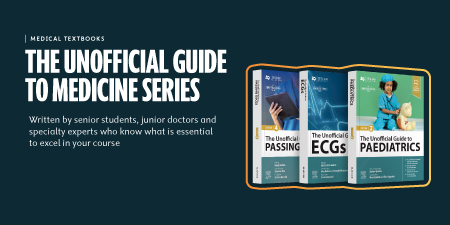How to Write the Perfect Medical Personal Statement
Featured Titles
Medical school applications in the UK are multifactorial, and for good reason! The various aspects of the application allow admissions teams to get a more holistic glimpse into you, as a candidate. One of the ways in which to truly showcase yourself as a strong candidate is via your personal statement.
The personal statement is a 4000-character essay that collates your achievements and lends a true picture of what you have to offer as a future medical student. It is an extremely integral part of the application. In fact, many medical schools place a heavy emphasis on the PS; they may even choose whom to interview based on the statement.
When to write your Personal Statement
Before you get bogged down in the specifics, it’s important to internalize a rough timeline of when to focus on various parts of your UCAS application. This will prevent any burnout or last-minute stress while ensuring you have enough time to put together an excellent application.
Medical school applications are due in the second week of October (usually 15th October); this includes all parts of the application except your BMAT results, if applicable. Therefore, your personal statement needs to be ready by October. And this is where our first piece of advice comes in – do not leave your PS to the last minute.
You should ideally start working on your PS in the summer after you graduate from school. Give yourself ample time to produce multiple drafts. Additionally, gather all the help you can from the people around you. Ask your English teachers to read the essay. Or your parents. If these aren’t approachable sources of help for you, feel free to approach medical students through LinkedIn and Twitter – many of us are more than happy to help you for free! To do this, you will need time so factor proof-reading into your timeline.
Structuring your Personal Statement
There are a multitude of ways in which to structure a personal statement. More importantly, there are no right or wrong ways to do so. However, the singular commonality between all good statements is that they tell a story.
Ensure that your PS speaks of your journey to medical school, inclusive of your passions, achievements, work experience and reflections.
Some commonly used frameworks are:
- Chronological: tell a story from start to finish; beginning with your initial inspiration to pursue a career in healthcare and ending with why you’d make a good doctor.
- Topic-centric blocks: focus on blocks of text exploring various aspects of your application, from work experience to extra-curricular achievements.
What to Include in your Personal Statement
One of the most daunting parts of the personal statement is figuring out what to include and what’s not worth your time. Wrapping it all up in 4000 characters can be even more difficult. Listed below are some of the most important things to include in your PS.
- Work experience: this is integral to show them that you have taken the time to find out more about careers in healthcare.
- Extra-curricular achievements and hobbies: medical schools are looking for holistic individuals who have passions outside of medicine.
- Soft skills: show them that you have the characteristics required by a healthcare professional, from leadership to communication skills.
- Reflections: more on this later but this is arguably the most important part of the statement.
Reflections in the Personal Statement
Reflections are an important part of being a doctor, but more importantly, it shows admissions officers that you didn’t just do things for your CV but rather to grow your personal and professional skill set.
Ensure that you ALWAYS reflect. If you mention a new period of work experience, hobby or other extra-curricular activity, include at least 1-2 sentenced reflecting on what you learnt from the experience.
Additionally, make sure that your reflections are relevant. A useful tip is to look at the course guides for the medical schools you’re applying to and looks for keywords and soft skills (i.e.; time management, problem solving etc). Find examples of when you’ve demonstrated these skills and weave them into your statement.
Below is an example of a good reflection;
“My leadership positions within XYZ allowed me to hone my professional skill set, with a particular focus on organization, effective communication in difficult situations and teamwork skills. I believe this will hold me in good stead in my future career.”
The above is a good reflection because it is concise with minimal adjectives and has keywords that your admissions officers will be browsing for. It doesn’t simply state what you did but rather how said activity has changed you (and made you more suitable to career in medicine).
Conclusion & Final tips
Personal statements are not without their own set of unique challenges. However, it’s important you get them right. Our most important piece of advice is F&B – fast and bad. Sometimes, putting words down on the page is the hardest part. The key to a good personal statement is to simply start writing. Forget about structure and word counts. Just put words down on papers and get to editing thereafter.
Good luck!




